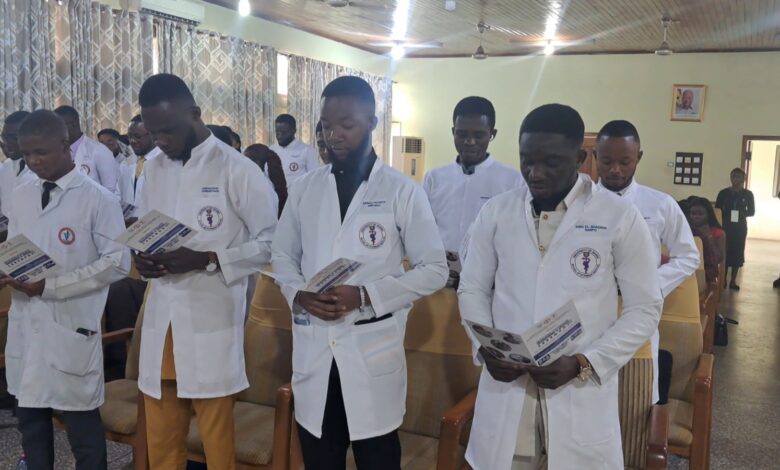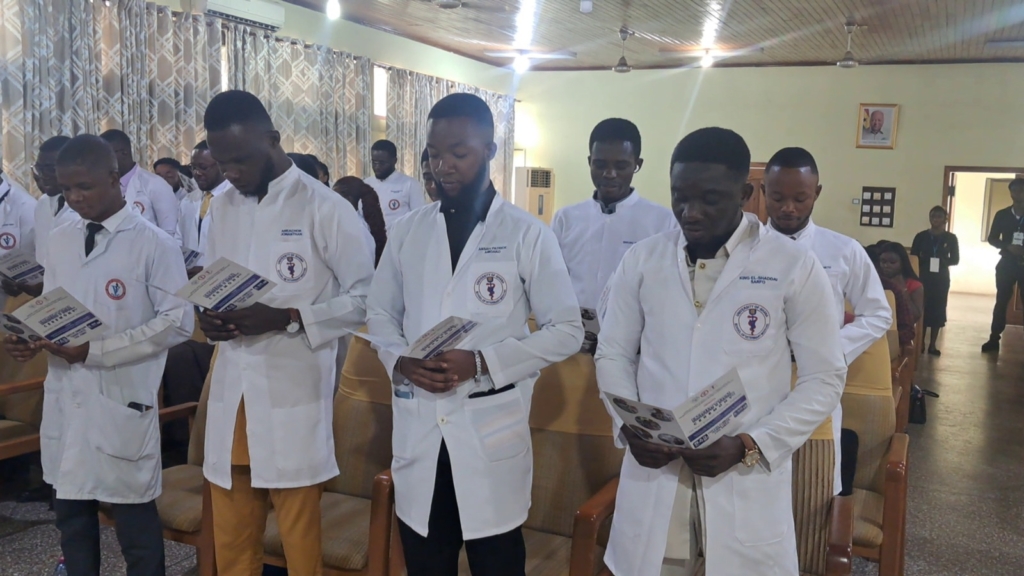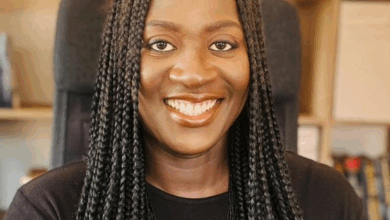Veterinarians charged to be ‘gatekeepers’ in protecting public health against zoonotic diseases


Veterinary doctors have been charged to live up to their mandates and enhance surveillance to fight the transmission of animal-sourced diseases to humans.
This follows the worrying trend of zoonotic diseases rapidly spreading to humans, including rabies, COVID, and the recent rise in cases of Monkey pox (Mpox).
Under the one health policy, health workers are collaborating to safeguard human, animal and environmental health against the spread of zoonotic diseases.
The human population continues to battle a number of zoonotic diseases, such as rabies and the recent surge of the Mpox disease.
Over 730 cases of Mpox have been confirmed in Ghana, with three related deaths.
The causative organism is believed to originate from animals, including rodents.
At the 2025 induction ceremony of newly qualified veterinary surgeons, the doctors were tasked to prioritize the protection of public health.
Pioneer Dean for the School of Veterinary Medicine at the KNUST, Professor Raphael Folitse, urged the doctors to be the gatekeepers of public health protection.
“They should perform their duties in such a way that these zoonotic diseases do not move from the animal population into the human population. They should protect public health. If they are able to detect these diseases early enough in the animal population, it will not spill over to humans,” he said.
Amidst the growing trend of zoonotic diseases is the influx of quack veterinarians who invariably contribute to the spread of the diseases due to their liabilities in treating animals with severe diseases.
The Veterinary Council of Ghana has disclosed it is working to deploy a regional task force clampdown on quacks posing as Veterinary Surgeons.
This is part of reforms to enforce high standards in Veterinary medicine and practice in Ghana.
“We are developing some standards and forming a task force in the region so that they can go round to crack down on these quacks,” Dr. Sherry Johnson, Chairperson of the Veterinary Council of Ghana, noted.
The ceremony saw 38 newly qualified Veterinary Surgeons from the Schools of Veterinary Medicine of the University of Ghana and the Kwame Nkrumah University of Science and Technology being inducted into office.
A Senior Veterinary Surgeon, Dr. Albert Kwansah-Filson, admonished the inductees to uphold the ethics of the profession.
“We expect them to follow the ethics of the profession. We want them to uphold the standards to foster growth in the profession,” he said.
The induction ceremony was themed “Empowering Future Generations: Upholding Integrity, Compassion and Excellence in Veterinary Medicine”.
DISCLAIMER: The Views, Comments, Opinions, Contributions and Statements made by Readers and Contributors on this platform do not necessarily represent the views or policy of Multimedia Group Limited.
DISCLAIMER: The Views, Comments, Opinions, Contributions and Statements made by Readers and Contributors on this platform do not necessarily represent the views or policy of Multimedia Group Limited.
Source link





